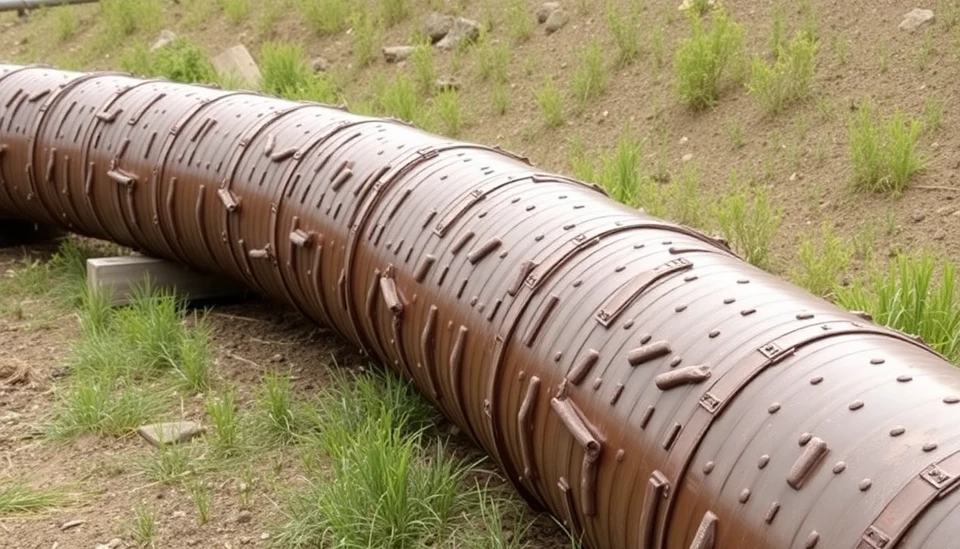
The ongoing saga surrounding the Keystone Pipeline continues as new developments reveal significant challenges delaying critical repairs. Recent reports indicate that a buildup of sludge within the pipeline has hindered restoration efforts, complicating the assessment of damage following the most recent leak.
Millions of gallons of oil were spilled due to a rupture in the Keystone Pipeline, which carries crude oil from Canada to U.S. refineries. This incident has not only raised alarms about potential environmental ramifications but has also triggered a robust response from regulatory agencies aimed at investigating the full extent of the breach. The sludge that has accumulated presents an additional obstacle by obscuring crucial sections of the pipeline, making it difficult for teams to conduct thorough checks and repairs.
According to spokespersons from TC Energy, the operator of the Keystone Pipeline, crews are currently undertaking efforts to clear the sludge. However, this process is proving to be more time-consuming than initially anticipated, resulting in significant delays. Industry experts suggest that the contamination has not only hindered immediate repair work but may also introduce complexities into the evaluation process that could extend timelines well into the future.
Environmentalists have expressed concern about the implications of this sludge for local ecosystems and wildlife. Activists are calling for heightened scrutiny and faster action to mitigate the negative impacts stemming from the pipeline's operational challenges. The spill and subsequent cleanup have reignited debates on the safety and sustainability of transporting oil through such infrastructures, pushing both regulatory bodies and the public to rethink energy transportation methods.
In addition to environmental concerns, the delayed assessments could potentially have economic implications for the energy sector. Analysts point out that prolonged disruptions within the Keystone system may result in unexpected shifts in crude oil prices, as market participants adjust to the uncertainty surrounding supply levels from the affected pipeline.
TC Energy has committed to resolving the issues as expeditiously as possible, but a comprehensive timeline for when assessments will be completed remains uncertain. The situation is being closely monitored by regulators, industry insiders, and environmental advocates alike, all eager for clearer answers regarding the future operations of the Keystone Pipeline.
As investigators and repair crews dive into the complexities of this incident, the focus remains not only on resolving the immediate issues at hand but also on ensuring reliable safety standards in the ongoing operation of such essential energy infrastructures.
With the multifaceted challenges surrounding the Keystone Pipeline, all eyes are watching to see how TC Energy responds to this significant event and what it might mean for the future of oil transport in North America.
#KeystonePipeline #OilSpill #EnergyIndustry #EnvironmentalImpact #TC_Energy #CrudeOil #InfrastructureSafety #RepairChallenges #PipelineIntegrity #RegulatoryResponse
Author: Peter Collins




